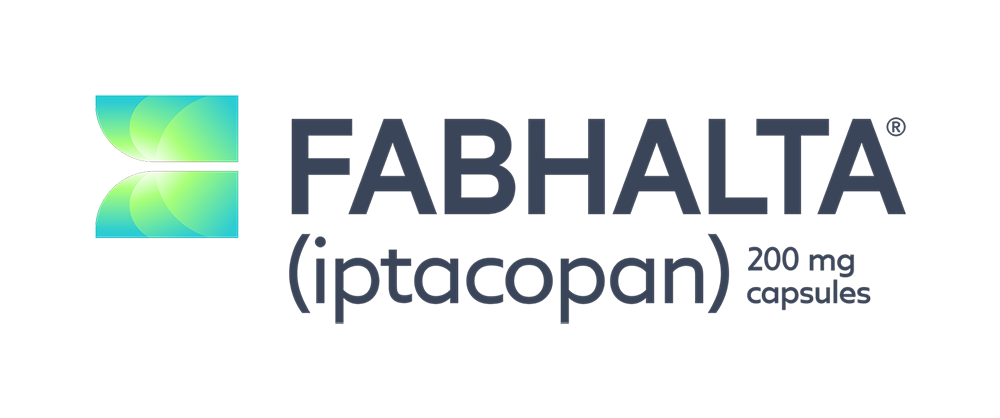Explore the mechanism of action of FABHALTA® (iptacopan)
FOR ADULT PATIENTS WITH C3G
Overactivation of the alternative complement pathway is thought to contribute to the pathogenesis of C3G1
Click on image to enlarge.
FABHALTA is the first and only FDA-approved oral treatment in C3G to inhibit the alternative complement pathway1
Click on image to enlarge.
PHARMACODYNAMICS1
Inhibition of the alternative complement pathway biomarkers, the in vitro alternative pathway assay, and plasma Bb (fragment Bb of Factor B) started approximately 2 hours after a single iptacopan dose in healthy volunteers. In C3G patients receiving 200 mg twice daily:
By Day 14, the geometric mean serum C3 increased from 23 mg/dL at baseline to 80 mg/dL in FABHALTA-treated patients compared to a decrease from 25 mg/dL to 24 mg/dL in the placebo group
At Day 180, plasma-soluble C5b-9 (MAC) decreased from baseline by 67% in FABHALTA-treated patients compared to a decrease of 3% in the placebo group
At Day 180, urine-soluble C5b-9 decreased from baseline by 88% in FABHALTA-treated patients compared to a decrease of 36% in the placebo group
At Month 6, the mean glomerular C3 deposition score (0-12) decreased by 0.8 (95% CI: -0.3, 1.8) from a baseline of 9.2 with FABHALTA and increased by 1.1 (95% CI: 0.1, 2.1) from a baseline of 9.6 with placebo
Hear from your peers about FABHALTA
Join an expert-led virtual discussion about FABHALTA for the treatment of adults with C3G, to reduce proteinuria.1
